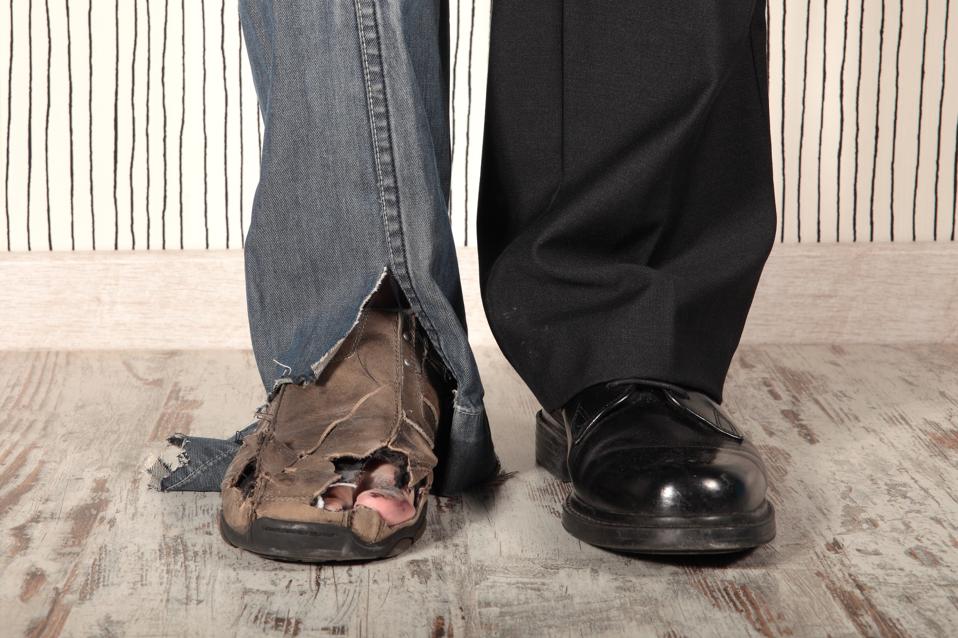Greatness is not just about intelligence. It comes from character, and character is not formed merely by being smart; it’s shaped by experiencing and overcoming suffering!
Huang, the CEO of Nvidia, spoke at the 2024 SIEPR Economic Summit and discussed the future of AI and the importance of resilience in achieving greatness. Nvidia is special because it leads in AI and graphics, with powerful chips and innovation driving tech advancements in various industries.
Huang co-founded Nvidia in 1993. His charisma, strategic thinking, and passion for technology have made him a well-respected figure in the tech industry. Huang’s success is also attributed to his ability to endure challenges and his commitment to creating an environment that fosters innovation and excellence. His leadership has led Nvidia to become a trillion-dollar company, making him one of the most influential figures in computing.
He emphasized that smart people who have suffered from setbacks often achieve greatness, and he openly talks about pain and suffering at Nvidia “with great glee.” Huang expressed his wish for Stanford students to experience “ample doses of pain and suffering,” as he believes it is crucial for their growth and success.
“One of my great advantages is that I have very low expectations. And I mean that. Most Stanford graduates have very high expectations. And you deserve to have high expectations because you came from a great school. You were very successful. Top of your class. Obviously, you were able to pay for tuition. And you’re graduating from one of the finest institutions on the planet, surrounded by other kids that are just incredible. You naturally have very high expectations. “
“People with very high expectations have very low resilience. And, unfortunately, resilience matters in success. I don’t know how to teach it to you except that I hope suffering happens to you. I was fortunate that I grew up with my parents providing a condition for us to be successful on the one hand, but there were plenty of opportunities for setbacks, for suffering. To this day, I use the phrase “pain and suffering” inside our company with great glee – ‘boy, this is going to cause a lot of pain and suffering’ – and I mean that in a happy way because you want to train, you want to refine, the character of your company. You want greatness out of them. And greatness is not intelligence. Greatness comes from character. And character isn’t formed out of smart people, it’s formed out of people who’ve suffered. And so if I could wish upon you – I don’t know how to do it – for all of you Stanford students – I’d wish upon you ample doses of pain and suffering.”
If you’ve been “fortunate” enough to navigate life without facing significant struggles or hardships, you might find yourself seeking a deeper sense of purpose or mental hunger.
David Goggins, a retired Navy SEAL and ultramarathon runner, has spoken extensively about the power of the mind and the impact of doing hard things on the brain (self inflected pain).
Recently in his discussions with neuroscientist Dr. Andrew Huberman, Goggins emphasizes that challenging oneself, especially in situations that are inherently uncomfortable, is crucial for building mental strength and resilience.
According to Goggins, doing hard things triggers growth in a specific area of the brain known as the anterior midcingulate cortex, which is associated with willpower and determination.
Goggins believes that continuously pushing oneself into discomfort is what builds this crucial part of the brain, leading to increased willpower and the ability to endure pain and suffering.
Embracing suffering is not a new concept; indeed, it has been a part of human experience for a long time. In fact suffering and its benefits have been a topic of discussion for many philosophers, thinkers, and writers throughout history.
- Friedrich Nietzsche famously said, “To live is to suffer, to survive is to find some meaning in the suffering.” This suggests that suffering is an inherent part of life, but finding meaning in it can lead to survival and personal growth.
- Mother Teresa: “Be faithful in small things because it is in them that your strength lies”.
- Thich Nhat Hanh, a renowned Buddhist monk, suggests that embracing suffering can lead to peace of mind: “When you welcome suffering and no longer hide from it, nothing can take away your peace of mind. No matter what happens to you, you know that you will be able to endure it”.
- The Dalai Lama offers a perspective on using suffering as a source of strength: “Tragedy should be utilized as a source of strength. No matter what sort of difficulties, how painful experience is, if we lose our hope, that’s our real disaster”
Think of grapevines, they must endure stress to produce the best wines. Limited water, nutrient scarcity, and pruning – all forms of stress – encourage the vines to focus their energy on fruit production rather than excessive foliage. This struggle results in grapes with concentrated flavors, leading to wines of exceptional quality.
Similarly, in our personal and professional lives, adversity and discomfort can drive us to dig deeper, tap into our resilience, and ultimately, emerge stronger. It is through facing and overcoming these challenges that we develop the character, skills, and determination necessary for success.
Just as a winemaker embraces the hardships of the vineyard to create a superior vintage, we too can learn to appreciate the value of pain and suffering in our journey toward growth and success.
“Pain and suffering are always inevitable for a large intelligence and a deep heart. The really great men must, I think, have great sadness on earth.” Dostoevsky
Embrace the discomfort and venture boldly into the world!!

